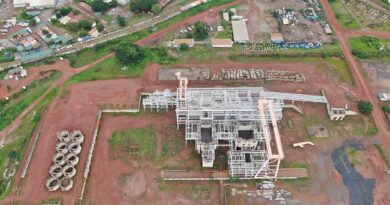Zambia Environmental Agency Approves 168 Developmental Projects Worth Over $900 Million
The Environmental Assessments Committee (EAC) of the Zambia Environmental Management Agency (ZEMA) has given the green light to 168 developmental projects with a combined investment of over $900 million, aiming to propel the nation’s growth trajectory.
In a recent announcement by Godfrey Mwiinga, Director General of ZEMA, it was revealed that these projects, sanctioned during the agency’s 16th and 17th sittings held between January and March 2024, span various sectors critical for Zambia’s development.
The approvals, guided by the Environmental Management Act and related regulations, underscore the government’s commitment to sustainable development while preserving the environment.
The approved projects comprise 162 Environmental Project Briefs (EPB) and 6 Environmental Impact Statements (EISs), indicating a meticulous scrutiny process tailored to the scale of environmental impact.
EPBs, designed for projects with minimal environmental footprints, outnumbered EISs, which are reserved for ventures with significant ecological ramifications.
Mwiinga emphasized the participatory nature of the environmental assessment process, praising the invaluable contributions from stakeholders and the general public. Their feedback, he noted, played a pivotal role in informing the agency’s decisions, ensuring a holistic approach to project approval.
Local authorities received special recognition for their proactive involvement in providing feedback on proposed projects. Their collaboration was hailed as critical to the Environmental Impact Assessment (EIA) process, underscoring the importance of multi-stakeholder engagement in sustainable development initiatives.
With a total investment exceeding $900 million, these projects are poised to inject vitality into Zambia’s economy, creating employment opportunities and fostering infrastructural development across various regions.
Moreover, the agency’s commitment to environmental stewardship ensures that economic progress remains harmonized with ecological sustainability.
As Zambia advances towards its developmental aspirations, the approval of these projects marks a significant milestone in the nation’s journey towards prosperity. With careful planning and stakeholder collaboration, Zambia is poised to unlock its full potential while safeguarding its natural heritage for generations to come.
Closing: The approval of 168 developmental projects signals a new chapter in Zambia’s quest for sustainable growth, underpinned by environmental responsibility and stakeholder engagement. As these projects commence implementation, all eyes are on Zambia’s trajectory towards a prosperous and ecologically resilient future.



